Feature Coming Soon!
The newsletter functionality is under development.

In the consistently changing field of software development, the knowledge is constant. Developers spend many hours searching through tutorials, documentation, and articles to find high-quality, reliable learning resources. What if there was a central library, created by thousands of developers worldwide, offering everything from career roadmaps to code snippets, all available for free?
That library is GitHub, and it is much more than just a place to store code. It has grown into a special ecosystem for learning and collaboration, a place where the collective works of the global developer community is shared openly.
It is a valuable source of collective knowledge. Covered within its billions of lines of code are repositories that have become essential learning tools for the developer community. This guide provides clear guidance on eight highly-regarded repositories that, when used together, can help shape your entire career, whether you are a student, a junior developer, or a seasoned engineer looking to upskill.
This is more than just a list of links; it is a guided tour. We will explore how to make your career path by building a solid foundation of computer science principles, understand the variations of your favorite programming language, succeed in technical interviews, and have a complete quick-reference guide at your fingertips.
Save this blog, open some new tabs, and get ready to explore some valuable resources. Your journey to leveling up your skills and advancing your career starts now.
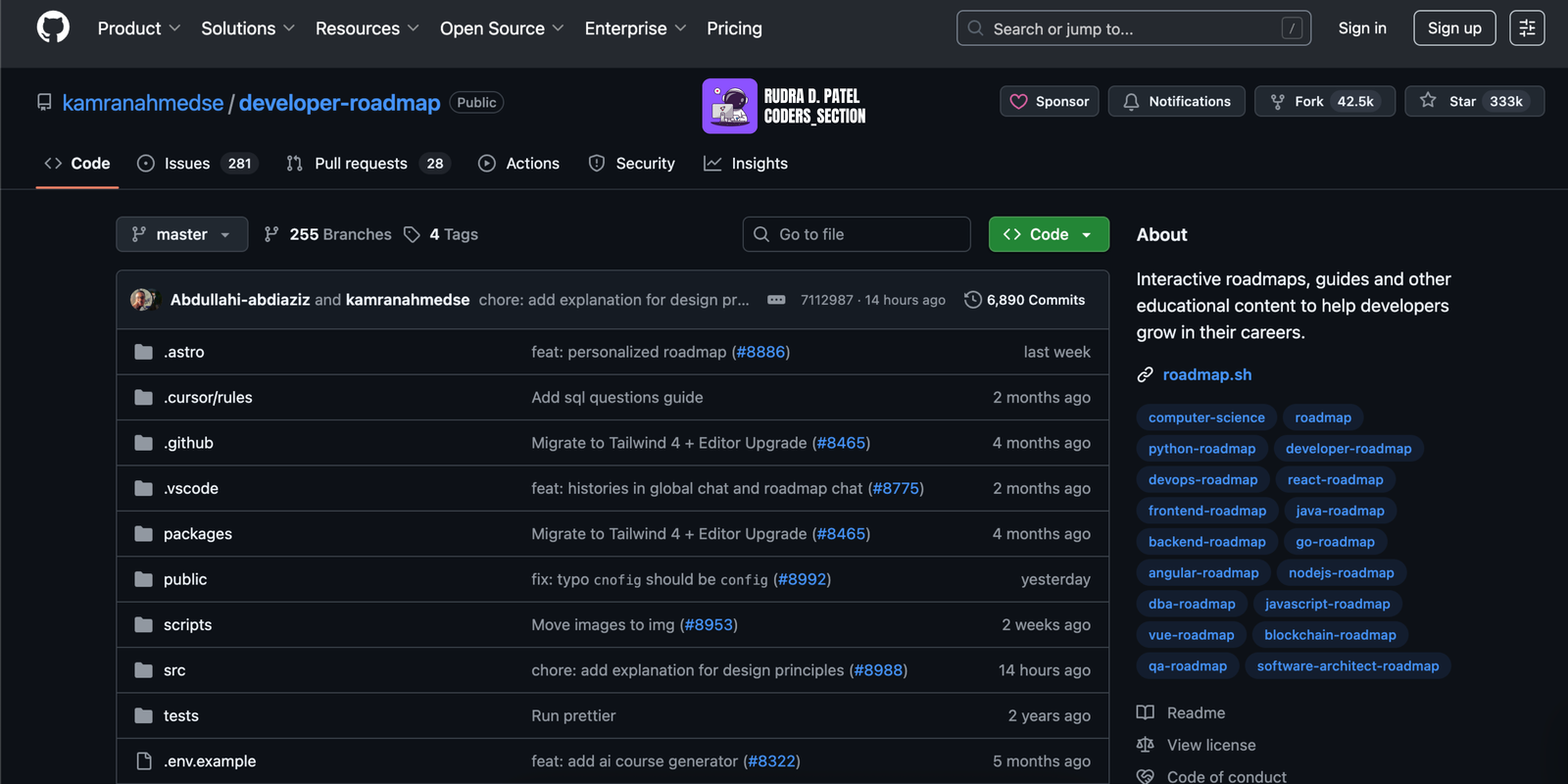
This is one of the most famous and impactful repositories on GitHub. It provides a set of clear, comprehensive, and interactive charts that fouses on the different paths, a person can take to become a Frontend, Backend, DevOps, or Blockchain developer, among others. Each node on the map represents a key concept or technology to learn. It clarify the complex topics of tech collections and provides a structured, step-by-step guide to follow. The roadmaps are updated regularly to reflect the latest industry trends, ensuring you are always learning relevant skills.
Why it is essential: The number of available technologies can be massive. This roadmap provides clarity and focus, answering the endless developer question: "What should I learn next?" It shows you the foundational skills, popular technologies, and even alternative options, all while indicating a logical learning progression. It prevents common risks like learning a framework before understanding the basic language fundamentals.
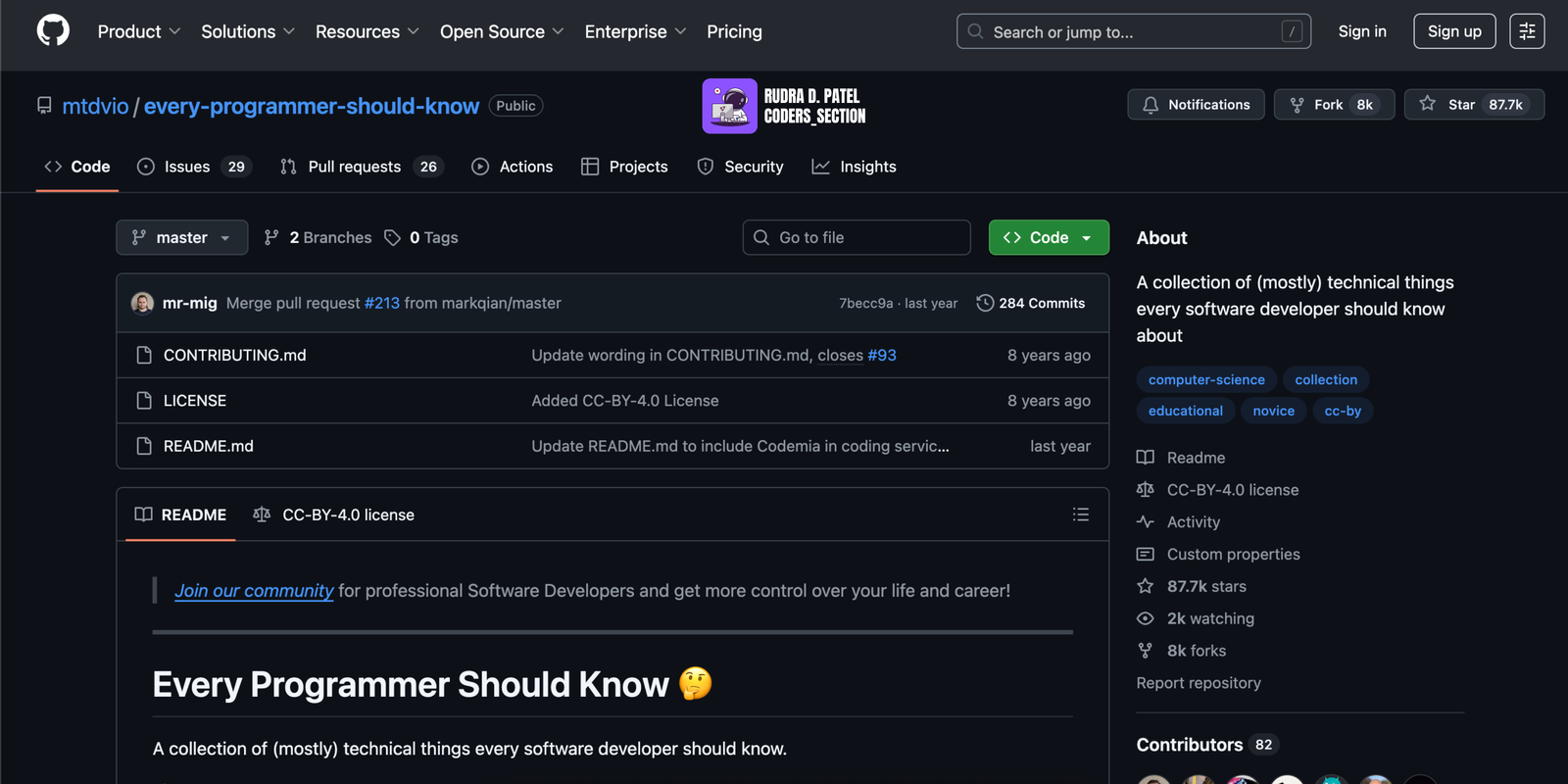
This repository is a perfectly selected collection of technical concepts that every software developer should be familiar with. It covers topics beyond simple programming syntax, such as latency numbers, algorithmic complexity, security principles, architectural patterns, and practical engineering wisdom. It combines the gap between writing code and understanding how computer systems work at a deeper level.
Why it is important: Writing a function is easy. Understanding why that function might be slow because it is causing too many database calls is what makes you a valuable engineer. This repository fills the gaps left by many coding bootcamps and self-taught paths, providing the computer science context that is crucial for building strong, scalable, and efficient systems.
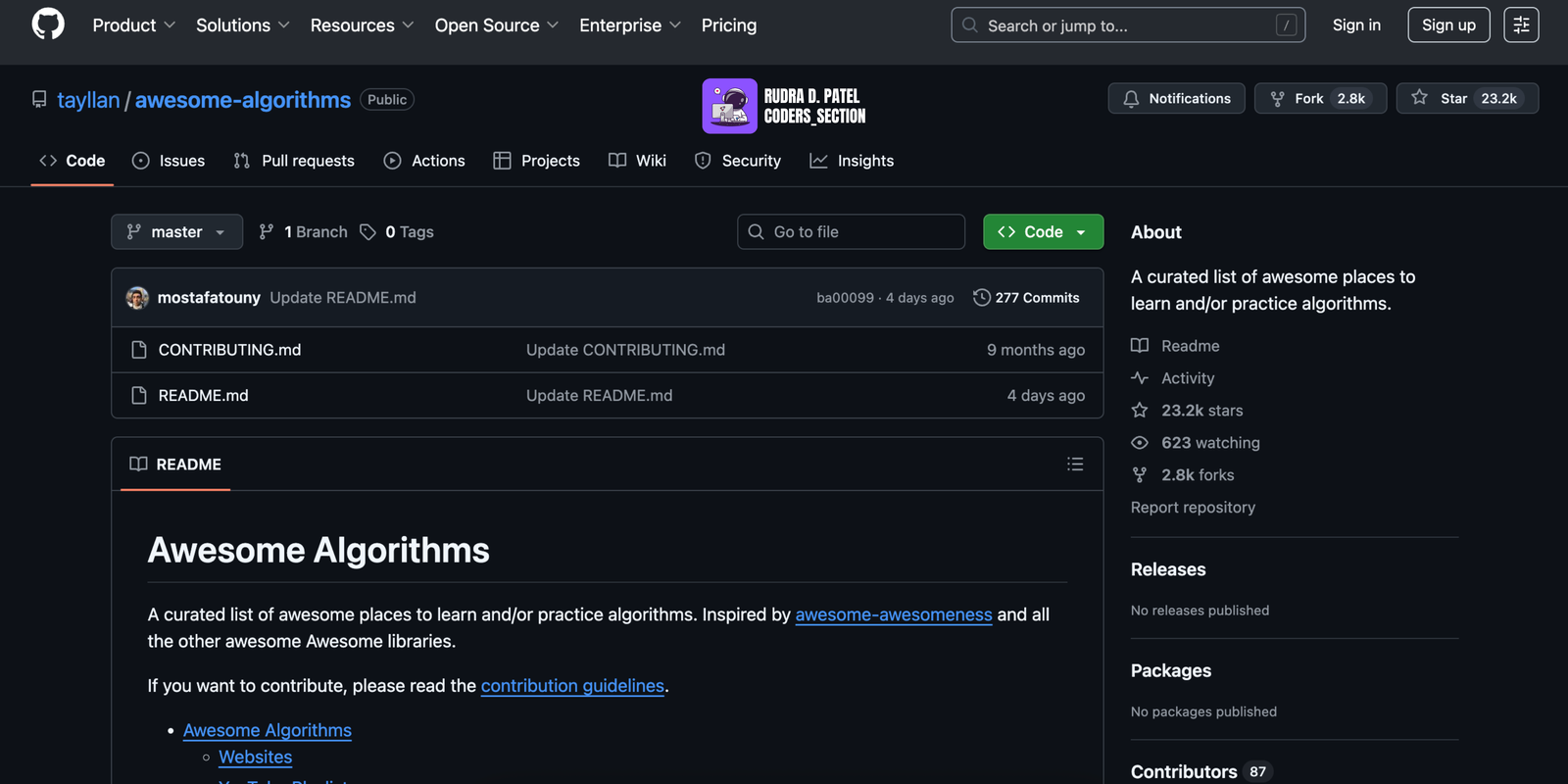
The world of Data Structures and Algorithms (DSA) is huge. This repository serves a valuable purpose by acting as a organized 'list of the best lists.' It have top-tier resources for learning and practicing algorithms, categorized by type, including courses, books, online judges, and visualizers. It saves your lot of time of searching for quality material.
Why it is required: Instead of wondering which platform is best for competitive programming or which YouTube channel has the best algorithm visualizations, you can simply explore this list. It points you directly to the highest-quality resources checked by the community, ensuring you invest your study time effectively. It is a starting point for anyone serious about mastering DSA.
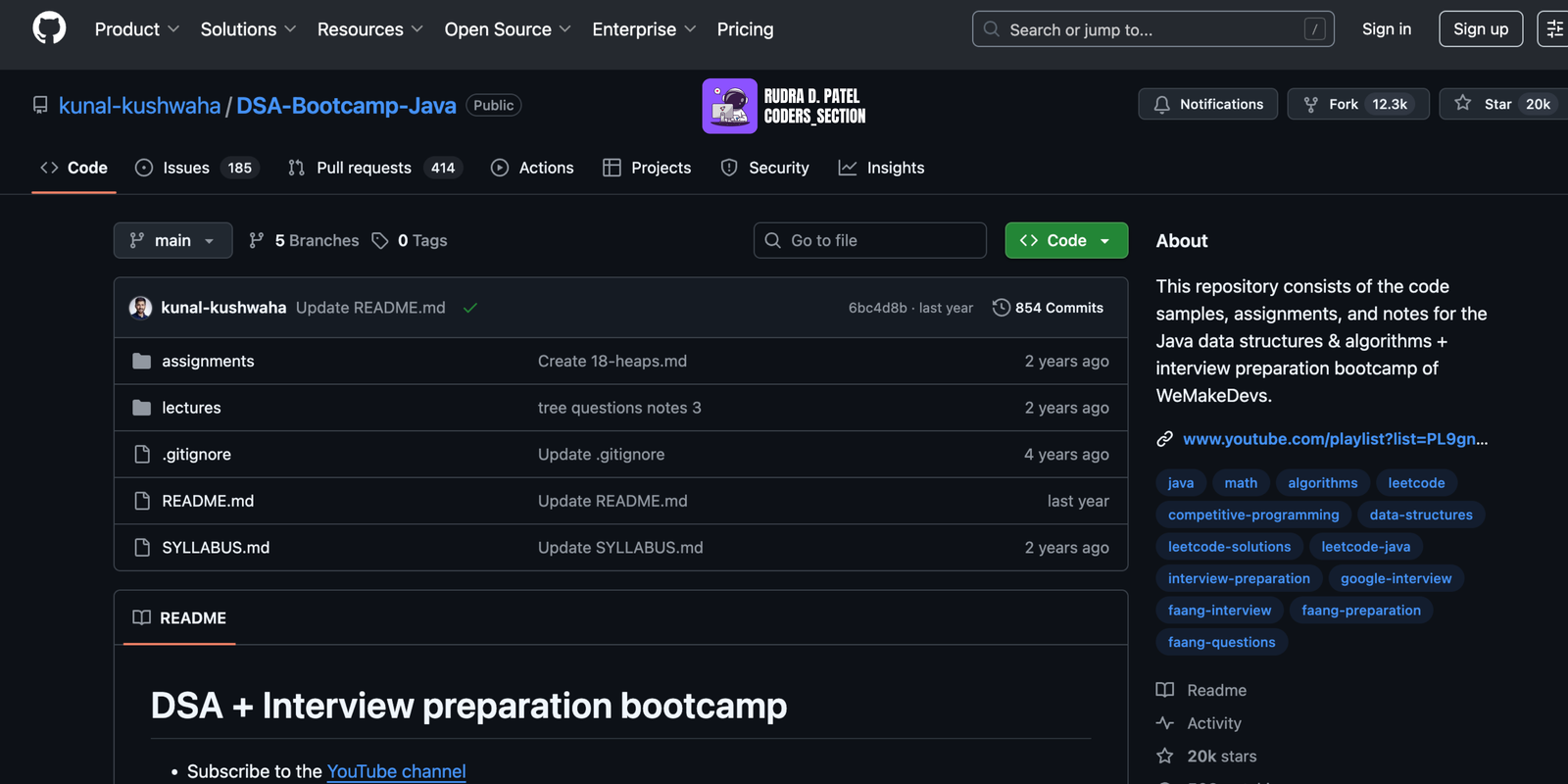
If Awesome Algorithms is the library catalog, this repository is a complete, university-level course. It contains the entire curriculum—code samples, notes, assignments, and interview questions—for a comprehensive Data Structures & Algorithms bootcamp taught using Java. The content is followed by a full video playlist, making it an accessible and structured learning experience.
Why it is essential: This is where theory meets practice. It offers a free, high-quality, structured course that takes you from the basics of programming to advanced topics like dynamic programming and graph algorithms. For anyone who wants a guided, hands-on path to mastering DSA—a critical skill for interviews at top tech companies—this is an unique resource.
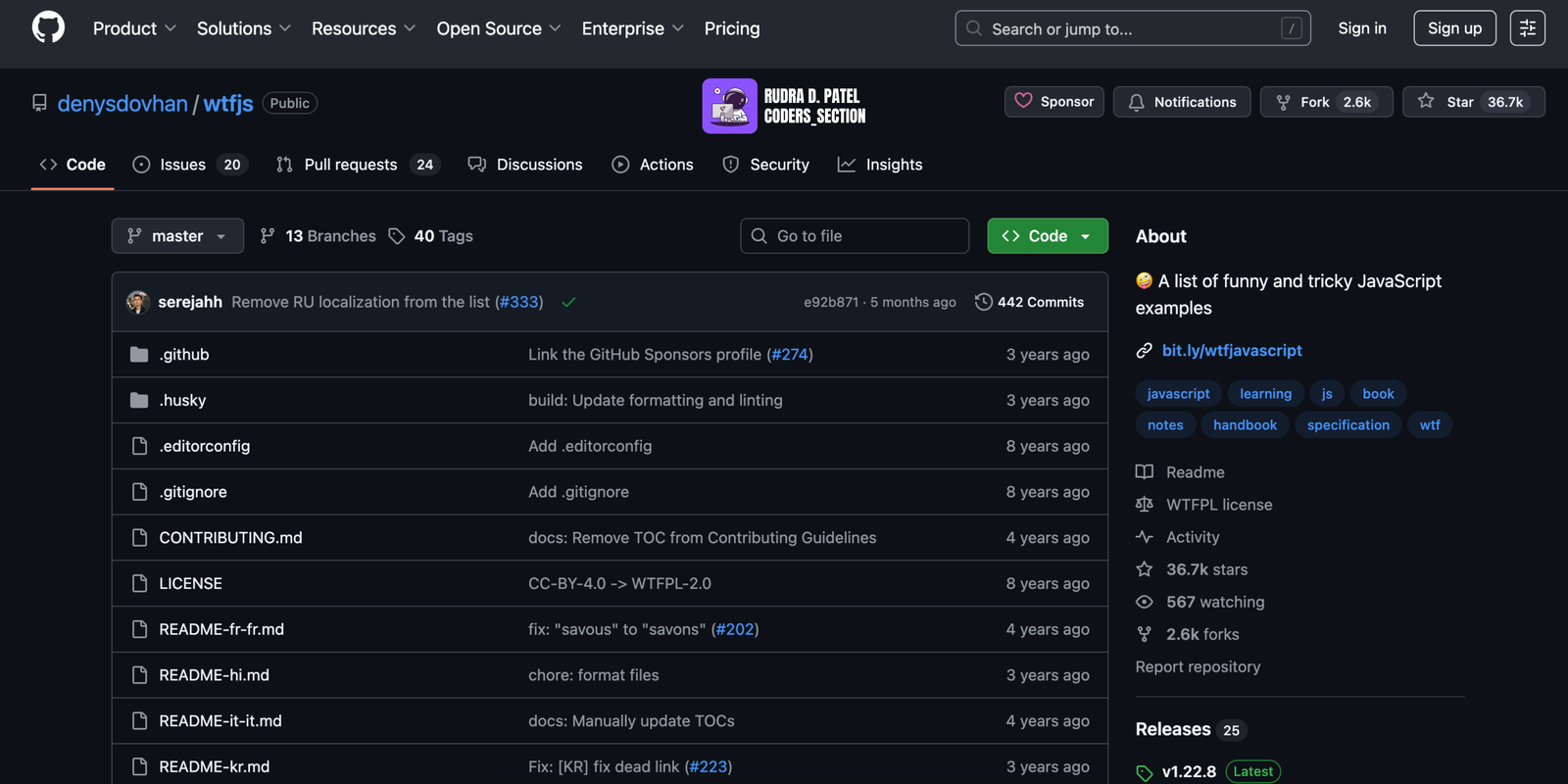
This repository is a surprising and deeply educational collection of unusual JavaScript snippets that don't behave as a person might expect. Each example is followed by a detailed explanation of why it works that way, diving deep into the language specifications on topics like type coercion, operator precedence, and special values. The name is a popular shortform for "What The... JavaScript?" used to describe these curiosities.
Why it is important: JavaScript is a tricky language. Understanding these edge cases is the difference between being constantly surprised by bugs and having a masterful command of the language. This repository turns moments of confusion into profound learning opportunities. It is learning through surprise and humor, which makes the complex concepts more memorable.
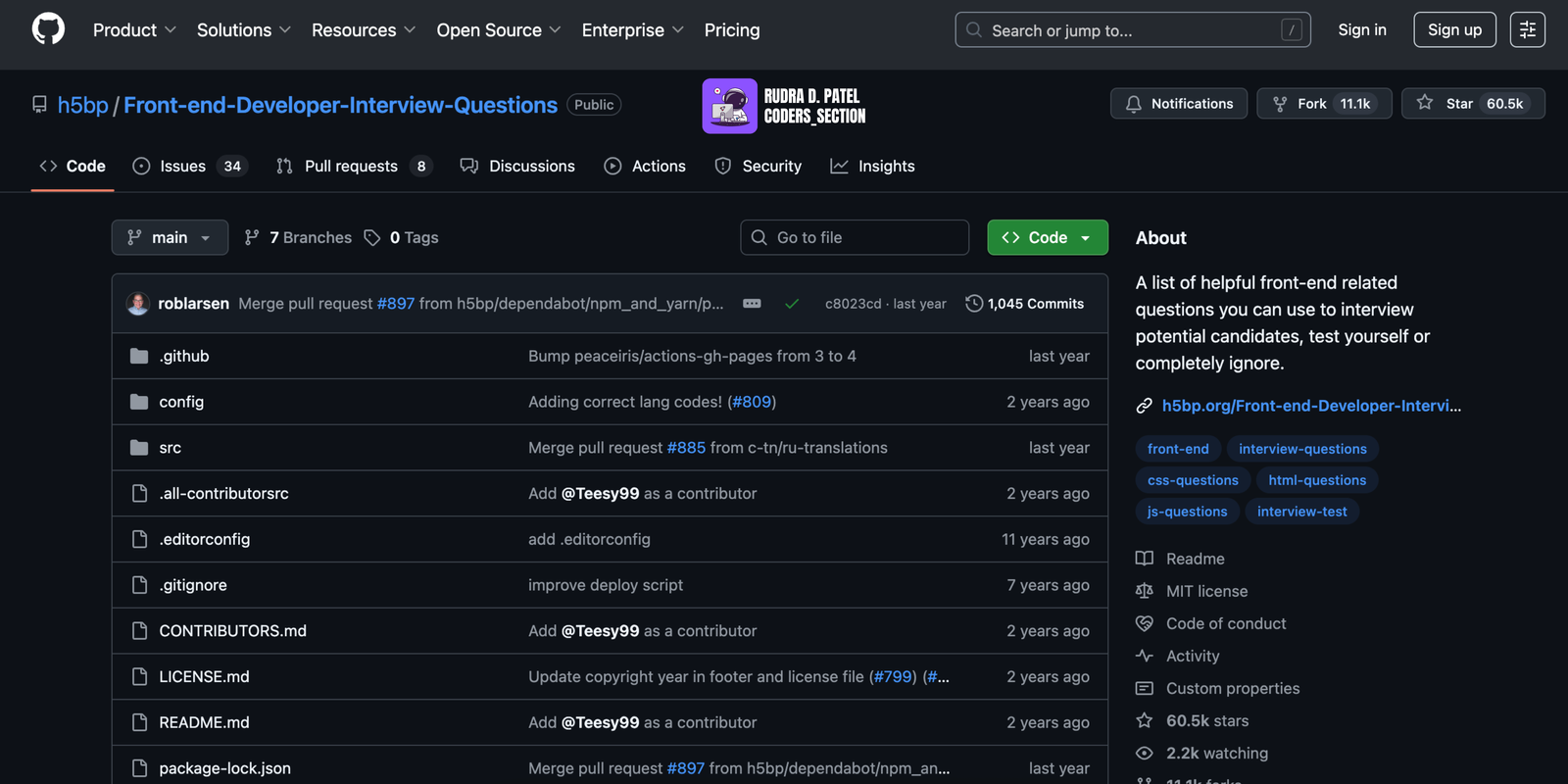
This is your interview training ground. A massive, community-driven list of general frontend questions, covering everything from HTML semantics and CSS concepts (like the box model and specificity) to JavaScript fundamentals (closures, prototypes, event loop) and networking (HTTP requests, CORS). It includes both theoretical questions and practical coding exercises.
Why it is required: It forms a complete database of what you can expect in a real-world frontend interview. It allows you to practice, identify your weak spots, and walk into your interviews with confidence. The goal is not to memorize answers, but to understand the concepts behind them, and this repo provides the perfect framework for that.
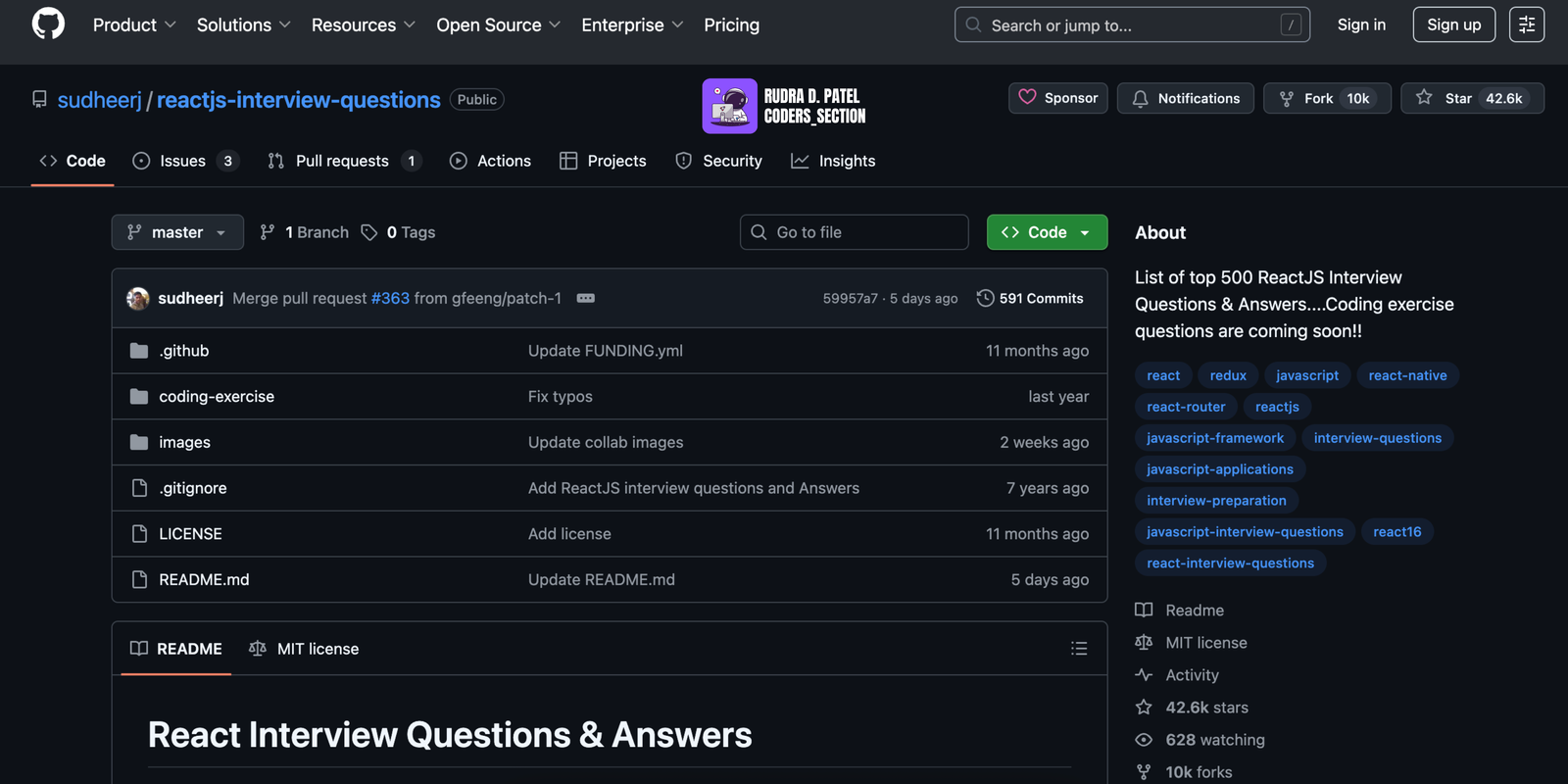
This repo is a laser-focused, deep dive into the React ecosystem, with hundreds of questions on Hooks, state management (including Context API and Redux), performance optimization, component lifecycle, and more. An important resource for preparing for React-specific roles, it covers both fundamental and advanced topics that are frequently asked in interviews.
Why it is important: While general frontend knowledge is crucial, specialized roles require deep expertise. This repository make sure you are prepared for the specific challenges and questions related to the React library. It helps you to learn complex React concepts clearly and prove your proficiency to potential employers.
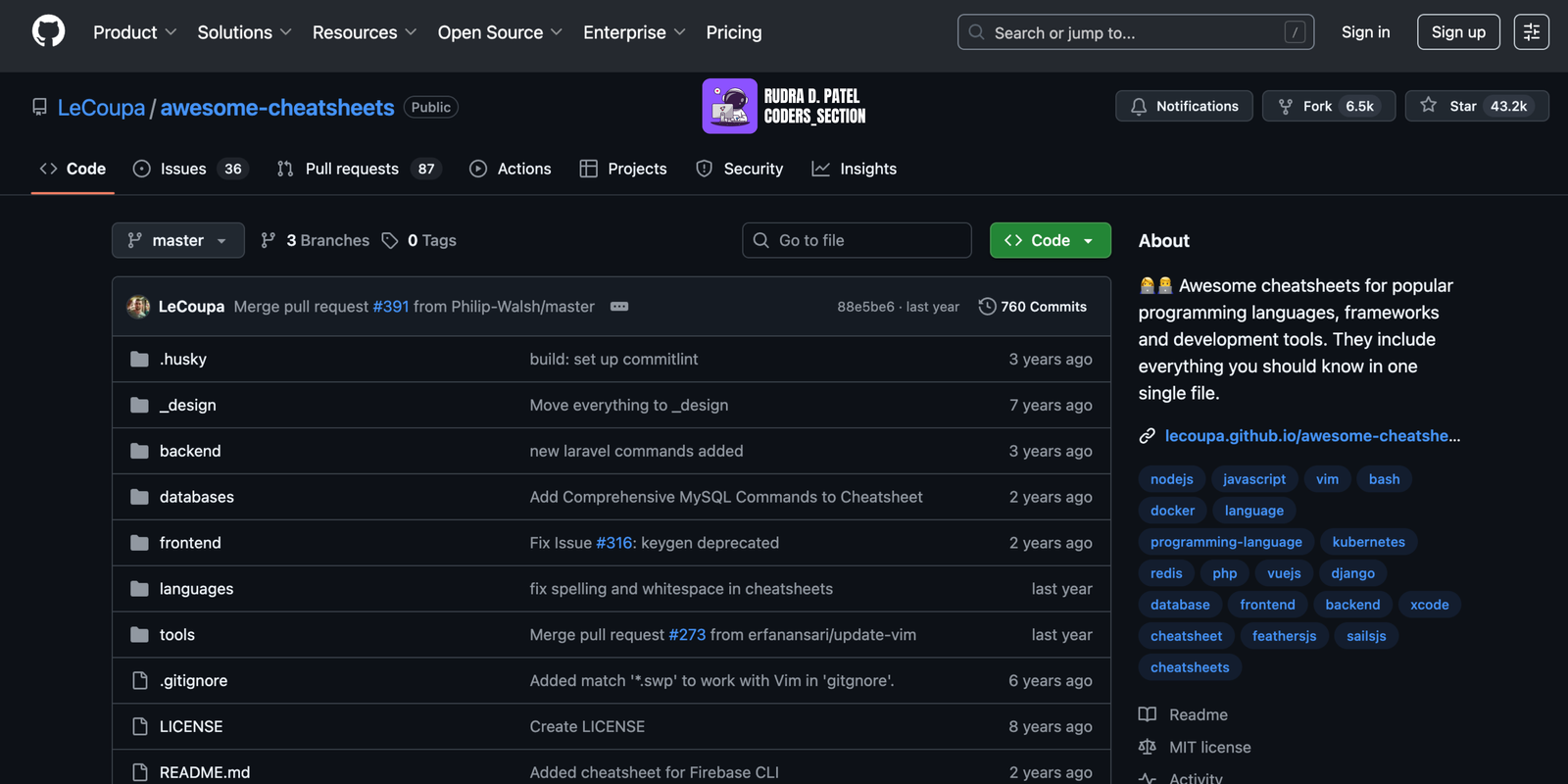
A huge collection of concise cheatsheets for a massive array of programming languages, frameworks, development tools, and databases. Need to remember the syntax for a Docker command, Git workflow, a specific JavaScript array method, or a Kubernetes command? It's in here. These cheatsheets are designed for quick reference, providing the most commonly used commands and syntax at a glance.
Why it is crucial: No developer, no matter how senior, remembers everything. This repository dramatically reduces "context switching" and saves you from constantly breaking your flow to search for basic syntax. It combine the most commonly used commands and concepts into single, easy-to-scan files, acting as a massive productivity booster and an invaluable "second brain" for your day-to-day work.
We have journeyed from planning your career with the developer roadmap to mastering fundamentals with resources like 'Every Programmer Should Know' and the DSA repos. We have sharpened our skills with WTFJS, prepared for interviews with the question lists, and equipped our daily toolkit with awesome-cheatsheets.
These eight repositories represent the incredible power of the open-source community. They are a testament to the fact that some of the best educational resources in the world are created, curated, and shared freely by passionate developers. By using these tools, you are standing on the shoulders of giants, benefiting from the collective experience of thousands of engineers who have faced the same challenges before you.
Your task now is simple. Don't just let these be eight more open tabs that you close tomorrow. Star them on GitHub to keep them organized. More importantly, integrate them into your learning routine. Pick one—just one—to dive into this week. Perhaps it is reviewing the Frontend roadmap to plan your next three months, or trying to solve one tricky WTFJS example every morning. Continuous learning is key to a successful career in development, and your personal library for that journey is now richer than ever.
Found this article insightful? Here are a few ways to continue your learning and help spread awareness:
Get coding tips and resource updates. No spam.
We respect your privacy. Unsubscribe at any time.